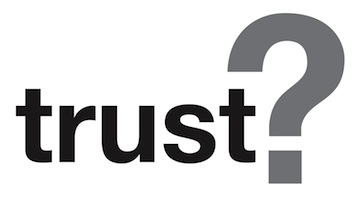Some work has already been completed on this topic by Professor Christine Ennew at the Financial Services Research Forum which is based at the University of Nottingham. Prof Ennew is a keen supporter of the Trust campaign and has been working with Mr Mullins to develop the index for long term use to measure consumer opinion.
As part of its ongoing research the forum has questioned over 15,000 people over seven time periods since 2009 and the findings are available at the University of Nottingham website.
One of the key factors to be measured by the index is 'active versus forced trust'. This is a characteristic which determines how trusting a person feels about their financial services provider and whether they feel 'forced' to use a financial organisation because there is no realistic alternative or if they are 'active' supporters of a company because they willingly trust it.
Prof Ennew found that consumers tended to trust their chosen institutions by as much as 10 times more than the industry as a whole.
When it came to receiving recommendations, people trusted those from their family and friends five times more than price comparison websites. On the positive side for Financial Planners, over 60 per cent actively trusted their financial adviser.
However, levels of so-called "forced trust" in financial organisations have been steadily rising to over 50 per cent of consumers while "active trust" has fallen to less than 30 per cent. Prof Ennew said: "People aren't saving sufficiently for the future. Part of that is because there's a breakdown of trust. They don't trust the products. They don't trust the companies that promote the products. They don't trust actually in saving being a good thing. Consumers are reluctant to use services they don't have trust in."
This reluctance to trust institutions meant less-trusting consumers had lower product consumption and product holdings, in turn making them more dependent on government welfare in the future.
Prof Ennew said that trust was a deep-held belief that took time to rebuild once it had been dented and as a result she was looking at a timescale of five to 10 years for change to improve matters. The first issue would be convincing the banks there is actually a problem, she said.
She added: "Parts of the industry have been responsible for some of the biggest scandals in business history. It is for the whole industry to first, accept that it's the case and, second, do something about it."
• Want to receive a free weekly summary of the best news stories from our website? Just go to home page and submit your name and email address. If you are already logged in you will need to log out to see the e-newsletter sign up. You can then log in again.

